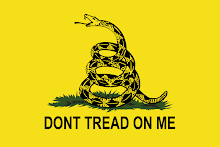IFILL: Vice President Cheney's interpretation of the vice presidency?There are several mistakes in the above statements. First, Article I of the Constitution is about legislative powers. Thus, the fact that the vice president’s duties are in Article I cuts directly against Biden’s argument. There is no provision extending presidential powers to the VP unless the president is incapacitated (US Const. amend XXV). Indeed, the fact that the Vice President’s duties and powers are so limited suggests that he was to spend most of his time in the Senate, possibly as a liaison between the executive and the legislative branches.
BIDEN: Vice President Cheney has been the most dangerous vice president we've had probably in American history. The idea he doesn't realize that Article I of the Constitution defines the role of the vice president of the United States, that's the Executive Branch. He works in the Executive Branch. He should understand that. Everyone should understand that.
And the primary role of the vice president of the United States of America is to support the president of the United States of America, give that president his or her best judgment when sought, and as vice president, to preside over the Senate, only in a time when in fact there's a tie vote. The Constitution is explicit.
The only authority the vice president has from the legislative standpoint is the vote, only when there is a tie vote. He has no authority relative to the Congress. The idea he's part of the Legislative Branch is a bizarre notion invented by Cheney to aggrandize the power of a unitary executive and look where it has gotten us. It has been very dangerous.
Further, the office of vice president received his budget and offices from the Senate until the 1970s. (See the Todd Zywicki posting on Volkh here, citing Glenn Harlan Reynolds, IS DICK CHENEY UNCONSTITUTIONAL? 102 Northwestern University Law Review 1539 (2008)).
As president of the Senate, the VP could wield considerable power, in theory. He could call for votes or halt votes at whim. (I believe there might be a provision in the Senate Rules to allow an override of the VPs actions as president of the Senate, but that is cumbersome to use.) Yet, few vice presidents have ever tried, and all have failed.
Finally, an argument that the VP is a creature of the Legislative rather than the Executive branch is in no way based on a “unitary executive” theory. In fact, it is quite the opposite.
But what do I know? I just read the Constitution…


No comments:
Post a Comment